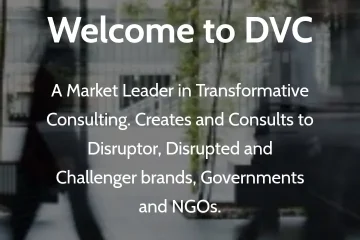As the UK forges ahead on its path towards a sustainable and resilient energy future, microgrids are emerging as a game-changing solution. These localized energy systems are revolutionizing the way communities generate, distribute, and consume electricity, paving the way for a more decentralized and self-sufficient energy landscape.
At their core, microgrids are small-scale power grids that can operate independently or in tandem with the main grid. By integrating renewable energy sources like solar panels and wind turbines, along with energy storage technologies such as batteries, microgrids offer a unique blend of resilience, efficiency, and sustainability.
Enhancing Energy Resilience
One of the key drivers behind the adoption of microgrids in the UK is the need for enhanced energy resilience. With the ability to seamlessly disconnect from the main grid during outages or emergencies, microgrids ensure a continuous and reliable power supply for critical facilities like hospitals, data centers, and emergency services. This added layer of resilience is particularly crucial in the face of extreme weather events and potential grid disruptions.
Embracing Renewable Energy Integration
Microgrids are playing a pivotal role in the UK’s transition towards a low-carbon economy. By facilitating the integration of renewable energy sources, these systems not only reduce reliance on fossil fuels but also contribute to the country’s ambitious goal of achieving net-zero emissions by 2050. The flexibility of microgrids allows for the seamless incorporation of intermittent renewable sources, ensuring a stable and consistent power supply.
Empowering Communities
Beyond their technical capabilities, microgrids are empowering communities across the UK to take control of their energy needs. Projects like the Isle of Eigg Electrification Project and the Water Lilies Microgrid in Bristol are shining examples of how communities can achieve energy independence and reduce their carbon footprint through localized energy generation and distribution.
Driving Innovation and Job Creation
The microgrid industry is not only transforming the energy landscape but also fostering innovation and job creation. As the demand for these systems grows, skilled professionals will be needed to design, install, and maintain these cutting-edge technologies. This presents a unique opportunity for the UK to position itself as a leader in the rapidly evolving microgrid market, attracting investment and driving economic growth.
Overcoming Challenges
While the potential of microgrids is undeniable, there are challenges that must be addressed. Regulatory barriers, interconnection issues, and the need for standardization are among the hurdles that must be overcome to facilitate the widespread adoption of these systems. Collaboration between policymakers, energy providers, and communities will be crucial in creating a conducive environment for microgrid deployment.
As the UK continues its journey towards a sustainable and resilient energy future, microgrids are poised to play a pivotal role. By empowering communities, integrating renewable energy sources, and enhancing energy resilience, these innovative systems are pioneering the path to energy independence and self-sufficiency. With the right policies, investments, and collaborative efforts, the UK can harness the full potential of microgrids, paving the way for a more sustainable and secure energy landscape for generations to come.
Applying the LOAF Gen AI24 framework
DVC Consultants and its LOAF GenAI 24 framework are actively contributing to the advancement of microgrid technology in the UK, providing strategic insights and predictive analysis to enhance the development and integration of these systems. By employing the LOAF framework, DVC is able to simulate various scenarios that address potential challenges and opportunities within the microgrid sector. This approach helps in anticipating the impacts of technological, regulatory, and market changes, allowing stakeholders to make informed decisions.
Through the Scenario Planning and Simulation stage of LOAF GenAI 24, DVC Consultants can visualize the dynamics of energy distribution networks under different conditions, fostering a deeper understanding of how microgrids can contribute to energy resilience and sustainability. Additionally, the framework aids in identifying innovative business models and operational strategies that could accelerate the adoption of microgrids.
By leveraging the predictive power of Generative AI, DVC Consultants are not only enhancing the capabilities of microgrids but also supporting the UK’s transition towards a decentralized and renewable energy system. Their work ensures that the planning and implementation of microgrid projects align with the long-term goals of energy independence and carbon neutrality, paving the way for a robust, sustainable energy future.
If you would like to know more about how this framework could be used for your business contact q.anderson@dvcconsultants.com




0 Comments